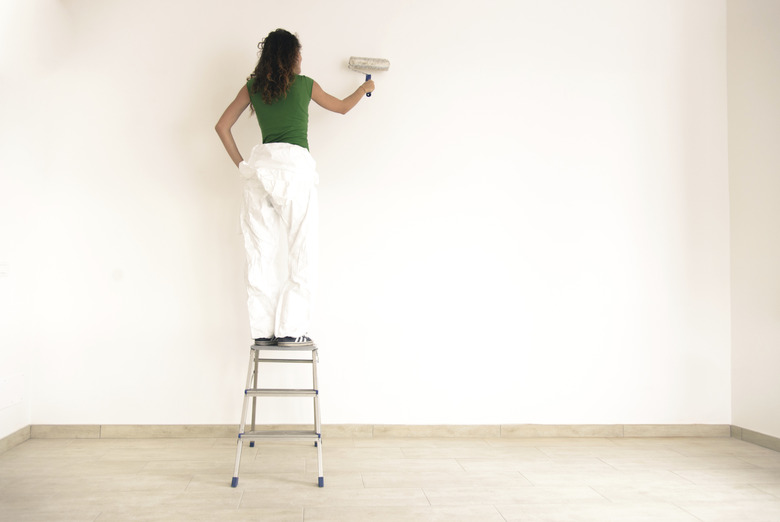What Things Could Be Producing An Acetone Smell In The Walls Of My House?
An acetone or nail polish remover smell can be difficult to diagnose, as many household chemicals and materials can emit an odor reminiscent of the chemical. One way to narrow down the possible list is to work through some common sources of sweet odors in your house's walls.
Caulk
Caulk
Caulk and silicone-based sealants can have a distinctively acetone or vinegar odor, and these aromas may linger long after application. If the wall exuding the odor is in a bathroom or kitchen, and you have recently sealed around a tub, sink, or toilet, the sealant is one likely source for the odor. Consider placing a fan in the area and opening doors and windows to air out the room.
Mold and Mildew
Mold and Mildew
A prolonged moisture leak behind a wall can lead to mold and mildew growth. One reason household mold is dangerous is because many varieties emit chemicals into the air as they grow and spread. These chemicals can take on a number of odors, from rotten eggs to acetone. If you suspect there has been a leak in your wall, have your home inspected for mold and water damage.
Sewer Gas
Sewer Gas
A dry drain trap in your basement or a cracked sewer pipe in your crawl space can allow sewer gas to escape up into your home's walls. The odor may permeate the walls easier than the floor and thus seem to emanate from them. Check for the odor, and look at your sewer and drain pipes for signs of cracks or leaks. If your drain trap is dry due to not being used, simply pouring water down the drain can refill the trap and seal off sewer gas.
Electrical Wire Issues
Electrical Wire Issues
A less likely, but still possible, source is an electrical issue. When wires short circuit inside walls, they can burn plastic in junction boxes, rubber coatings on the wires themselves and even insulation. These issues can produce a range of chemical smells that may resemble acetone. If you suspect an electrical issue, switch off your circuit breaker and contact the local fire department to see if they offer free inspections.
